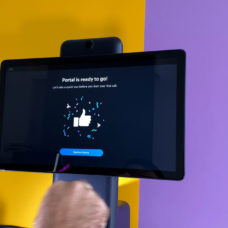Information is more valuable now more than ever. Fifty percent of the world’s population now has access to the Internet. So, unsurprisingly, companies are continually trying to collect information from these 3.5 billion people to improve their products or services.
This raises a big concern with data privacy. According to a survey, 17 percent of Internet users in the United States thought that their data was secure online. While various tech companies have different ways of collecting user information, Facebook is the most notorious of all.
According to a Reuters survey, American users trust other tech companies with their data over Facebook. Although Facebook has more users, 51 percent of the respondents said they didn’t trust the platform at all or didn’t trust it very much.
Since Facebook has shown that it’d go to any lengths to learn about its users, the survey result is not surprising.
It begins like this; the company collects your information without consent, gets caught in the act, and apologizes for it. Then, the cycle starts again.
Here are four instances that prove just that.
1. Onavo’s Free VPN
Back in 2013, Facebook acquired a VPN service company called Onavo. Like other VPN apps, Onavo was supposed to block potentially harmful website and protect your data. However, the Facebook-owned app did just the opposite.
Later in the year, Apple discovered that the Onavo collected user data about the mobile apps that people use and the sites they visited. As a result, it kicked the app out of the App Store for violating its privacy policies. That didn’t stop Facebook from trying again.
2. Paying Teens $20 For Personal Information
Earlier in the year, TechCrunch reported that the social network company paid teens $20 per month to install a data-gathering app on their phone. Aside from tracking private messages in social media apps, the intrusive app also had access to web searches, emails, media, and other local information.
Rather than use the App Store this time, the company asked users to install the Facebook Research App from a specific URL. Then the app asks for permission to monitor all their activities.
Sounds like Onavo all over again, right? That’s what TechCrunch thought too.
However, Facebook denied that the Research app was a revamped version of Onavo. Whatever the case may be, it shows how determined Facebook is to get their hands on your information.
3. Sponsored Stories
With access to users’ content such as comments, check-ins, and photos, Facebook used Sponsored Stories to create ads for companies such as Starbucks and Coca-Cola. Furthermore, the social network didn’t provide an option to opt out of it.
So, it wasn’t surprising when a group of people sued Facebook in April 2011 for using their information without their consent. Two years later, the company had to pay $20million to be distributed among 614,000 people. Also, it shut down the Sponsored Stories program.
4. Android Call Logs and SMS
After the 2018 Cambridge Analytica scandal, the social network company changed its privacy policy. Users were allowed to download the data Facebook collected on them. That’s when we noticed something odd.
Along with the usual comments and preferences, the social media giant also read users call logs as well as SMS metadata. According to ArsTechnica, Facebook collected information from Android phones that have the social media app installed for years.
Facebook Knows You Better Than You
Whether it’s by fair means or foul, Facebook has always managed to get its hands on users’ data. Aside from the four outlined above, there are probably tons of other methods that never became public.
You don’t even have to be on the social media platform for the company to collect your data. For all we know, the integration of WhatsApp, Instagram, and Facebook messenger may be a ploy to find out more about its users.
Whatever the case may be, we know one thing to be true; your online data is never safe.



















Comments (0)
Most Recent